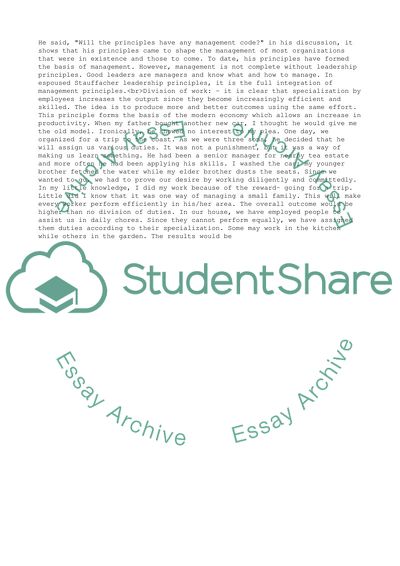Cite this document
(“MANAGEMENT PRINCIPLES Term Paper Example | Topics and Well Written Essays - 1250 words”, n.d.)
MANAGEMENT PRINCIPLES Term Paper Example | Topics and Well Written Essays - 1250 words. Retrieved from https://studentshare.org/management/1637929-management-principles
MANAGEMENT PRINCIPLES Term Paper Example | Topics and Well Written Essays - 1250 words. Retrieved from https://studentshare.org/management/1637929-management-principles
(MANAGEMENT PRINCIPLES Term Paper Example | Topics and Well Written Essays - 1250 Words)
MANAGEMENT PRINCIPLES Term Paper Example | Topics and Well Written Essays - 1250 Words. https://studentshare.org/management/1637929-management-principles.
MANAGEMENT PRINCIPLES Term Paper Example | Topics and Well Written Essays - 1250 Words. https://studentshare.org/management/1637929-management-principles.
“MANAGEMENT PRINCIPLES Term Paper Example | Topics and Well Written Essays - 1250 Words”, n.d. https://studentshare.org/management/1637929-management-principles.


